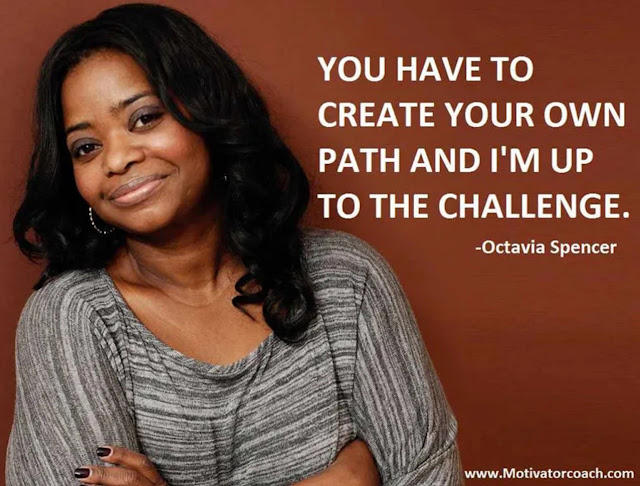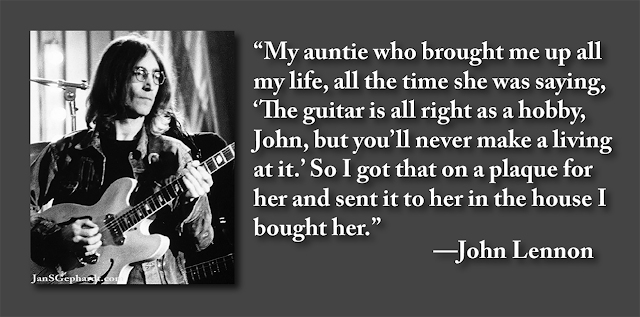By G. S. Norwood
In the previous blog post, I wrote about my career in the arts. That started me thinking about all the bad career advice I got along the way—back when I was still trying to answer that age-old question: What do you want to be when you grow up?
Back then, in the Stone Age, little White American girls had two basic career choices beyond wife and mother. We could be a teacher or a nurse. Little Black girls were told they could be maids. Of course, even then, women performed a much wider variety of jobs, but society’s imagination offered us very limited options.
The newspaper’s Help Wanted section included columns titled “Jobs for Men” and “Jobs for Women.” Woe betide any women who aspired to a job meant for a man. I am, thankfully, a bit too young to remember similar columns designated for men and women of color.
 |
| “What do You Want to be When You Grow Up?” The well-meaning elders who advised the author had a limited view of young women’s career options. (credits below). |
The Stereotypes Persist
Even today, in the stories we tell ourselves in film, the stereotypes persist. At 12:47 minutes into this 2016 interview for Vanity Fair, Oscar winning actress Octavia Spencer spoke about how hard it was for her to find roles that offered any kind of variety.
“Right after I did The Help—it was barely in the can—I was all excited about the possibilities that were to come,” Spencer said. “And 90% of the roles were, ‘We have this great role for you,’ and it was a maid. ‘We have this wonderful role!’ and it was a maid.” And I was, ‘You know, I just played the best damn maid role written. I don’t have a problem with playing a maid again, but it has to top this one.’ And none of them did.”
Fortunately for all of us, Spencer got proactive about finding better roles, and followed the success of The Help by playing the strongly maternal Wanda Johnson in Fruitvale Station and mathematician/computer pioneer Dorothy Vaughan in Hidden Figures.
 |
| Octavia Spencer passed up a lot of stereotyped roles to follow her dream. (Inspiring Quotes). |
Be a Stripper
Young people are guided into careers in ways that are shaped by their family history and by the cultural norms of their time. When I was in high school, a new wave of feminism was just taking hold in America, although it hadn’t penetrated too far into my corner of Missouri. As seniors, about to enter our post high school careers, we were all given an aptitude test that was meant to identify jobs we might be suited for. I don’t know what that test was called, or what range of careers it included, but I do remember the ideal career it identified for me: Stripper.
I’m going to be generous and assume that a) the test was referring to someone who takes paint off industrial surfaces using solvents, or perhaps connects pieces of film into a continuous reel. And b) the test was primarily geared toward suggesting blue-collar skilled trades in traditionally male fields.
Editorial note from Jan, who worked in a print shop around the time G. got that test result: In the printing industry at that time, a "stripper" prepared photographic negatives to make photo-offset lithography plates to go on printing presses. It was a decent blue-collar job until the advent of desktop publishing a couple of decades later.
I don’t think “Stripper” was the test’s nod to my being female, with an interest in the arts. But where were the teachers and nurses? The college professors and directors of concert operations?
 |
| Bad career advice for creative people also may come from standardized aptitude tests. (credits below). |
What Do You Want To Be When You Grow Up?
I profoundly hope that particular aptitude test is no longer on the market. But career options continue to be limited by society’s expectations. Not so very long ago nearly every college bound adult was told to go into computing, because that’s where the employment growth and competitive salaries could be found. Never mind that some of us have no aptitude at all for that kind of work.
A better approach, I think, is to guide people toward careers that use the talents and abilities they naturally have. As job seekers, we tend to believe that jobs have to be hard and involve ‘work.’ But the truth is, the best careers are built on the skills and interests we have had all along. The stuff we’d do for fun, for free. We discount our talents because those things come easily to us. We forget that they don’t come easily to everyone else and are therefore valued by the people who can’t do that stuff.
One standardized test I recommend to young people now is Clifton Strengths, developed by the management consulting company, Gallup, Inc. It helps you identify your own individual talents and suggests careers where you can use them.
 |
| John’s aunt lived to see what spectacularly bad career advice she’d given in reply to “What do You Want to be When You Grow Up?” (credits below). |
Aim Low?
Your parents love you. They want you to have a steady income and secure employment. Maybe that’s why parents so often tell their children to curb their aspirations, as Mimi Smith told her nephew and future Beatle John Lennon. It’s safer than shooting for the stars.
Or, as novelist Deborah Crombie’s mother used to tell her, “If you go to secretarial school, you’ll always have a job.”
She wasn’t exactly wrong. What she should have said was, “Typing is a skill that’s highly portable, and can be used in many fields.” And that, I think, is the key to finding your career bliss. Have a lot of useful skills in your toolbox. Typing, coding, generating new ideas, balancing books, and listening empathetically are all useful in a wide range of careers. Even stripping.
 |
| It takes literally hundreds of creative people to make a movie. (credits below). |
Your Job Hasn’t Been Invented Yet
But the truth is, your ideal job might not have been invented yet. I advise students whose parents don’t think they can make a living in the arts to take the folks to any Marvel movie. Sit through all the closing credits. Hundreds of names will scroll by—all of them people with jobs in the arts. Perhaps more importantly, many of those people have jobs that weren’t even invented when the adults who advised them last considered the job market.
When you combine your unique talents with the skills in your toolbox and the needs you see emerging in the world around you, you may invent a whole new answer to that age-old question, “What do you want to be when you grow up?”
IMAGE CREDITS
We have a lot of people to thank for the pictures in this post. Photos for the “Women’s Work” montage and the John Lennon quote were selected and arranged by Jan S. Gephardt. All three of the vintage photos for the “Women’s Work” montage have backstories worth sharing!
WOMEN’S WORK
Virginia Woodard is the tired teacher in her classroom. This was the end of her first day of teaching in 1960 at Mission View Elementary School in Tucson, AZ. The school still serves students today. Dan Tortorell photographed her for the Tucson Citizen. According to the information on Tucson.com, “She told the reporter she almost decided to turn back after getting within a block of the school.” For perspective, 1960-61 was also Jan’s first grade year.
The photo of the two unidentified nurses, taken by Gordon A. Larkin, dates to 1954. We used a detail. Scrubs Magazine identifies it as Photograph 825 from the Mount Saint Vincent University Archives.
Jan found the 1960s-era photo of an unidentified Black maid and White child on Bettye Kearse’s excellent post, “Mammy Warriors: An Homage to Black Maids.” It's written from the perspective of a Black woman whose ancestors included slaves. She critiques the persistent stereotype and pushes back with a blast of reality.
CAREER ADVICE
The Octavia Spencer quote-image came from a compilation of the Oscar-winner's wit and wisdom on “Inspiring Quotes.”
The classroom full of adolescent test-takers shows students taking a standardized test circa 1978 at Cook Jr. High. At least the decade is right, even if these kids are a little younger than G. was when her test results advised her to be a “stripper.” Lawrence Cook Middle School (current name) remains an active school in Santa Rosa, CA. Many thanks to the Santa Rosa-based Press Democrat for the photo!
Take a look at an (unidentified) 1970s-era print shop stripper in action. It's the second photo down on this page of photos by Dan Wybrant. That guy looks a lot more like the print-shop strippers Jan knew, than her sister ever did.
ENTERTAINERS EXTRAORDINAIRE
Jan illustrated the widely-available John Lennon quote with a detail from a photo by Andrew Maclear and Redferns. It was captioned, “John Lennon of The Beatles performs with The Dirty Mac on the set of ‘Rock ‘n’ Roll Circus.’” She found the photo on Cheatsheet.com.
For a case-in-point for G.’s argument that a Marvel movie requires hundreds of (gainfully employed) arts workers, see this post on Polygon. It explains what the VFX (visual effects) artists did to create Avengers: Endgame. If you read it, you’ll also see where Jan found the screen-capture from the movie’s end credits.
The research was fun, and we thank all of our sources.
No comments:
Post a Comment